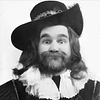Take a photo of a barcode or cover
adventurous
sad
medium-paced
Enjoyed for the nostalgia and its place in comic lore. When the comic was originally released in monthly installments, and that made sense but I think reading all of this in one go, is a lot and can feel repetitive in some places, as it attempts to make sure the reader is aware of what is happening. What DC Comics set out to do to merge and reboot was a work of art.
I liked this one okay although it felt really long at times. I think the Anti-monitor didn't need to come back to life so many times.
Gosh, it' s a slog isn't it. Crisis is a landmark of event comics but I have got to say that this is definitely a bit of a chore.
I have been off comics for quite a while and thought I would read some old stuff as well as new stuff, so have been revisiting things that I remember in the past.
I have got to say that I can't recall the crisis stuff that much and looking back over it, it still seems a bit vague.
And I think I might like to leave it that way to be honest. I think that sometimes when you go back and look at things it is best sometimes to leave them in a rose tinted past that was better than what you actually remembered.
The idea for the story is good, the artwork is excellent, but the rest of it.
I think the main character, Captain Exposition takes centre stage in this comic. There is so much dialogue, thought bubbles and God knows what else, I sometimes lose track.
I mean I cannot remember some of the dialogue in comics being so bad. This at times makes me think it should have been written in the fifties, not the eighties.
I mean I remember reading comics at this time and they were ace. Stuff like cerebus the aardvark, Alan moore, Frank Millar.
This does not come into the same league.
In short, get the Wikipedia revision notes. It will be easier.
I have been off comics for quite a while and thought I would read some old stuff as well as new stuff, so have been revisiting things that I remember in the past.
I have got to say that I can't recall the crisis stuff that much and looking back over it, it still seems a bit vague.
And I think I might like to leave it that way to be honest. I think that sometimes when you go back and look at things it is best sometimes to leave them in a rose tinted past that was better than what you actually remembered.
The idea for the story is good, the artwork is excellent, but the rest of it.
I think the main character, Captain Exposition takes centre stage in this comic. There is so much dialogue, thought bubbles and God knows what else, I sometimes lose track.
I mean I cannot remember some of the dialogue in comics being so bad. This at times makes me think it should have been written in the fifties, not the eighties.
I mean I remember reading comics at this time and they were ace. Stuff like cerebus the aardvark, Alan moore, Frank Millar.
This does not come into the same league.
In short, get the Wikipedia revision notes. It will be easier.
"Explain that to me, Harbinger! What happened to my life? I am flesh and blood... I exist... yet I don't exist."
This is a wild read. Originally intended as a sort of business move for DC Comics, who had by that time created so many different versions of characters on so many different Earths (for example, Earth 1, Earth 2, Earth 3, Earth X, Earth Prime, etc) that their DC Universe had become unwieldy, this comic was supposed to tidy things up and reset everything into one, congruent universe setting. I am not well versed in comics, however, so the effect of reading this book was kind of amazing. I encountered pages and pages of characters I just had to assume meant something to other people. After 100 or so pages of this, the effect was to totally destabilize all notions of centralized, unique "superheros."
The existence of this heterogeneity of superheros, some with other worldly powers, some without even that distinction, causes the reader to follow their collective abstraction, since none have the page space to truly stand out. You follow "superhero-ness" as it fights against the evil... wait for it... Anti-monitor. Awesome name, mostly because it drives an entire dialectical plot towards (strangely) Hegelian concepts.
The Monitor is a character who has functioned throughout the ages as a sort of uber-voyeur/arms dealer. He watches every superhero on every planet and collects data on them (and I gather at one point he was selling this data to villains for cash). One could very easily interpret this character as a stand in for the avid comic book reader, only taller. In this particular story, the main baddy is the Monitor's twin brother, established at the beginning of the Universe's creation yet set in an anti-matter sphere. He is the Anti-monitor and he wants to destroy everything. Insert dramatic music and postmodern irony here.
The binary relationships are set and blurred many times over in this novel: superheros decentralize into the collective, super villains fight to retain their Hegelian dialectical relationships with superhero counterparts, thus calling into question their defining motives, the worldly threat (the anti-monitor's desire to condense all reality into a single anti-matter universe, his own) not only ties indirectly to the comic book reader's identity but underscores a weird sort of "negation of the negation."
In short, 1) all concepts in the DC Universe (characters, settings, origins, etc) are shown to have an opposite and opposing side, 2) as the balance between these sides shifts gradually, then suddenly, gradual changes lead to major turning points, which tumble and shift the nature of reality, and 3) all of these turning points develop as a "negation of the negation" and the DC Universe as well as all its characters are changed forever. In this case, consolidated into a unified universe with separate and unique parts (i.e. only one Earth) among other ways.
I definitely do not recommend this to just anyone. You have to either totally be into the world of comics already (in which case, my reading of it will be as bizarre to you as this novel was for me) or willing to really brave out some strange ideas with a huge collection of characters whom you never even knew existed. I liked reading this but only because I loved how campy it was and I found it intellectually engaging (in my own way).
This is a wild read. Originally intended as a sort of business move for DC Comics, who had by that time created so many different versions of characters on so many different Earths (for example, Earth 1, Earth 2, Earth 3, Earth X, Earth Prime, etc) that their DC Universe had become unwieldy, this comic was supposed to tidy things up and reset everything into one, congruent universe setting. I am not well versed in comics, however, so the effect of reading this book was kind of amazing. I encountered pages and pages of characters I just had to assume meant something to other people. After 100 or so pages of this, the effect was to totally destabilize all notions of centralized, unique "superheros."
The existence of this heterogeneity of superheros, some with other worldly powers, some without even that distinction, causes the reader to follow their collective abstraction, since none have the page space to truly stand out. You follow "superhero-ness" as it fights against the evil... wait for it... Anti-monitor. Awesome name, mostly because it drives an entire dialectical plot towards (strangely) Hegelian concepts.
The Monitor is a character who has functioned throughout the ages as a sort of uber-voyeur/arms dealer. He watches every superhero on every planet and collects data on them (and I gather at one point he was selling this data to villains for cash). One could very easily interpret this character as a stand in for the avid comic book reader, only taller. In this particular story, the main baddy is the Monitor's twin brother, established at the beginning of the Universe's creation yet set in an anti-matter sphere. He is the Anti-monitor and he wants to destroy everything. Insert dramatic music and postmodern irony here.
The binary relationships are set and blurred many times over in this novel: superheros decentralize into the collective, super villains fight to retain their Hegelian dialectical relationships with superhero counterparts, thus calling into question their defining motives, the worldly threat (the anti-monitor's desire to condense all reality into a single anti-matter universe, his own) not only ties indirectly to the comic book reader's identity but underscores a weird sort of "negation of the negation."
In short, 1) all concepts in the DC Universe (characters, settings, origins, etc) are shown to have an opposite and opposing side, 2) as the balance between these sides shifts gradually, then suddenly, gradual changes lead to major turning points, which tumble and shift the nature of reality, and 3) all of these turning points develop as a "negation of the negation" and the DC Universe as well as all its characters are changed forever. In this case, consolidated into a unified universe with separate and unique parts (i.e. only one Earth) among other ways.
I definitely do not recommend this to just anyone. You have to either totally be into the world of comics already (in which case, my reading of it will be as bizarre to you as this novel was for me) or willing to really brave out some strange ideas with a huge collection of characters whom you never even knew existed. I liked reading this but only because I loved how campy it was and I found it intellectually engaging (in my own way).
Surprisingly, I was very moved near the end of the book. Although very disjointed due to the time-jumping nature of the story, at the end, I found it worth the confusion at the beginning. Told from the POV of The Flash, the Multiverse is being destroyed one universe at a time. The super-heroes in multiple universes are being tapped to save all their worlds. Of the billions, only five Earths are left. The premise is pretty awesome, but I think the translation from graphic novel to book form left a lot to be desired. Furthermore, whoever did the copy-editing could've done with one more look-through.
Classic story that changed superhero comics, still works today
It’s finally over. That was more painful than reading textbooks.
I know this was no remotely easy task of a project to take on. Put all of the DC characters in one weird linear story? Bonkers. Still, it carries the old school aloud-narration, where someone will articulate their thoughts as they're going about their day. That should be internal monologue, but sometimes it's thoughts (because you can't have 100 narrators at once - that's ridiculous). I get it. This had a lot of cheese to it, and it was took me a long while to get into, and it was confusing in many moments, but it was thrilling to read something this big and crazy and all-encompassing. Seriously, just the huge vibe of it was cool to take on as a reader. It's slow and not what you're expecting if you came of age in the later eras of comics, but, hot damn, just to see every DC character in one story, no matter how important or mundane, is pretty damn dope.









